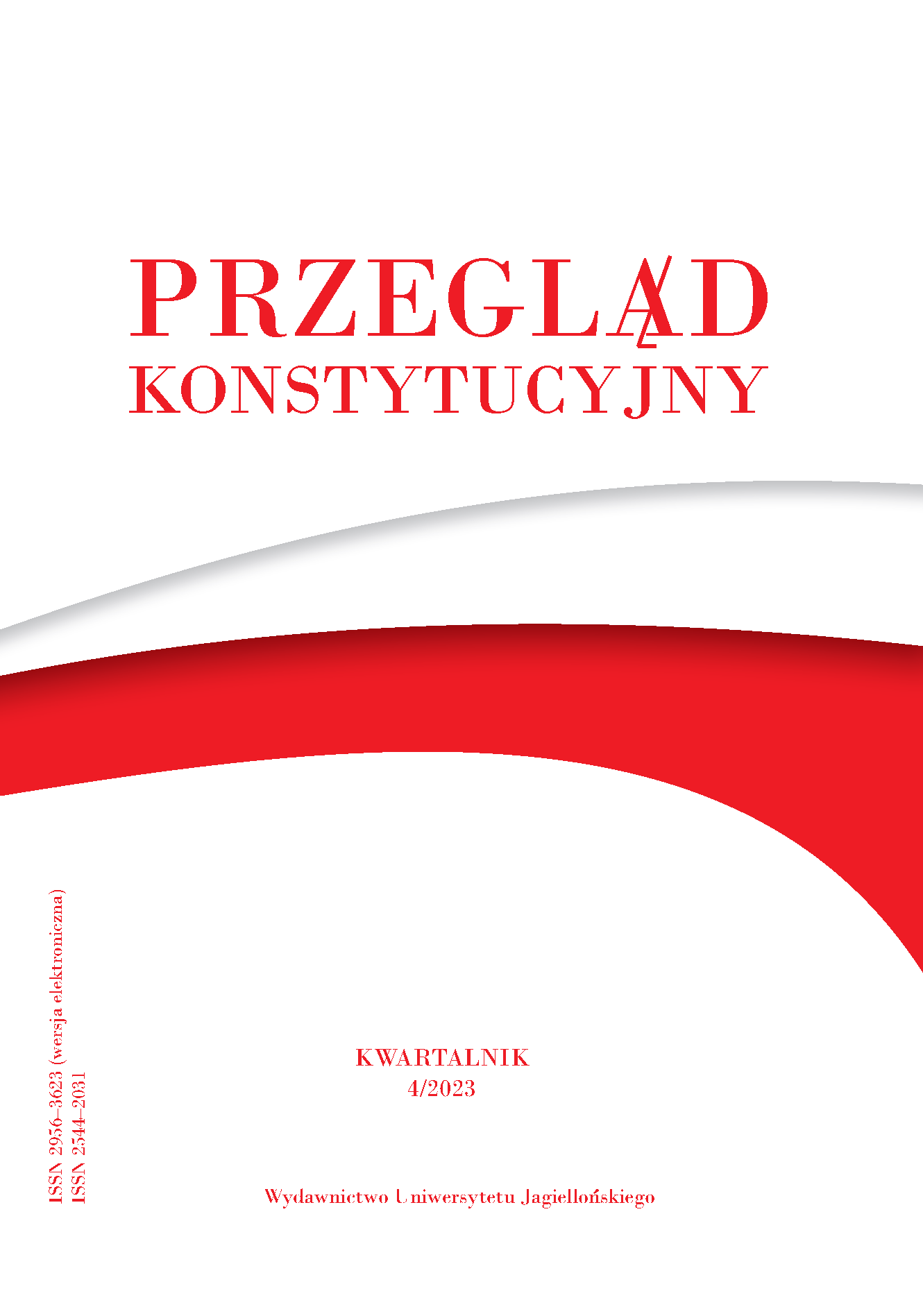Kiedy cnota staje się maską tyranii, czyli jeszcze kilka uwag o rozstrzygnięciu Trybunału Konstytucyjnego w sprawie K 1/20
Angielski: When virtue becomes a mask for tyranny, or a few more comments on the Constitutional Court’s decision in Case K 1/20
Author(s): Agata Niżnik-MuchaSubject(s): Politics / Political Sciences, Politics, Social Sciences, Law, Constitution, Jurisprudence, Constitutional Law, Human Rights and Humanitarian Law, Civil Society, Public Law, Sociology, Social Norms / Social Control
Published by: Wydawnictwo Uniwersytetu Jagiellońskiego
Keywords: abortion; protection of human life; principle of dignity
Summary/Abstract: In its judgment of 22.10.2020 (K 1/20), the Constitutional Court ruled out the possibility of aborting a pregnancy due to the occurrence of a so-called embryopathological premise. It deprived women of the possibility to make an autonomous decision in the case of severe and irreversible disability or incurable disease of the fetus. The paper analyses the Court’s errors in, inter alia, establishing the constitutional status of the nasciturus, conducting the dignity argument or the proportionality test. The authoress shows that the judgment is political and ideological in nature and that the Court refers to the judgment in Case K 26/96 in a selective and manipulative manner. The text to some extent polemics with the theses of P. Łącki and B. Wróblewski presented in the paper on Niekonstytucyjność tzw. aborcji eugenicznej (embriopatologicznej). Schemat argumentacji Trybunału Konstytucyjnego w sprawie K 1/20 (Unconstitutionality of the so-called eugenic (embryopathological) abortion. The pattern of argumentation of the Constitutional Tribunal in Case K 1/20), which came out in the previous issue of the “Przegląd Konstytucyjny” quarterly.
Journal: Przegląd Konstytucyjny
- Issue Year: 2023
- Issue No: 4
- Page Range: 55 - 77
- Page Count: 23
- Language: Polish

